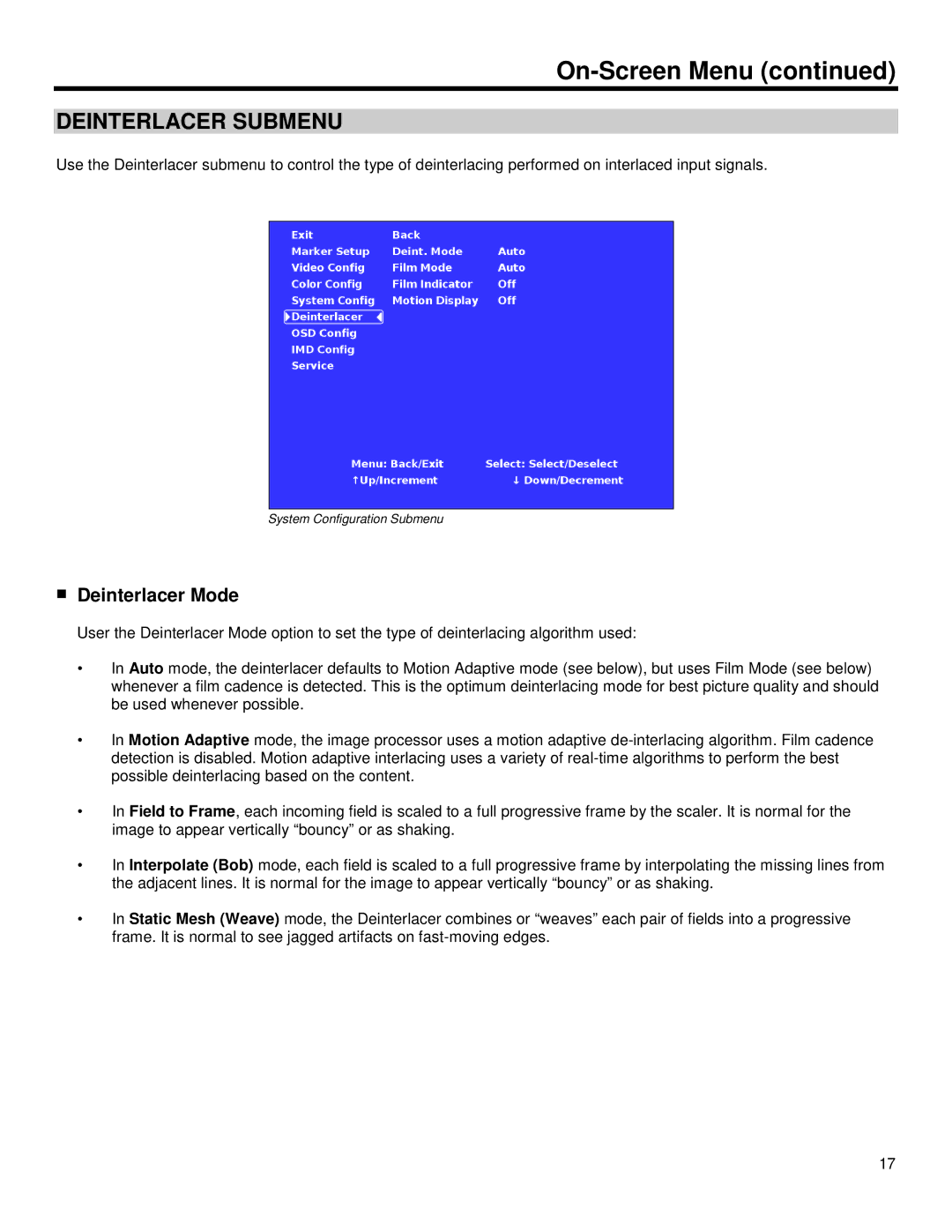
On-Screen Menu (continued)
DEINTERLACER SUBMENU
Use the Deinterlacer submenu to control the type of deinterlacing performed on interlaced input signals.
System Configuration Submenu
■Deinterlacer Mode
User the Deinterlacer Mode option to set the type of deinterlacing algorithm used:
•In Auto mode, the deinterlacer defaults to Motion Adaptive mode (see below), but uses Film Mode (see below) whenever a film cadence is detected. This is the optimum deinterlacing mode for best picture quality and should be used whenever possible.
•In Motion Adaptive mode, the image processor uses a motion adaptive
•In Field to Frame, each incoming field is scaled to a full progressive frame by the scaler. It is normal for the image to appear vertically “bouncy” or as shaking.
•In Interpolate (Bob) mode, each field is scaled to a full progressive frame by interpolating the missing lines from the adjacent lines. It is normal for the image to appear vertically “bouncy” or as shaking.
•In Static Mesh (Weave) mode, the Deinterlacer combines or “weaves” each pair of fields into a progressive frame. It is normal to see jagged artifacts on
17
